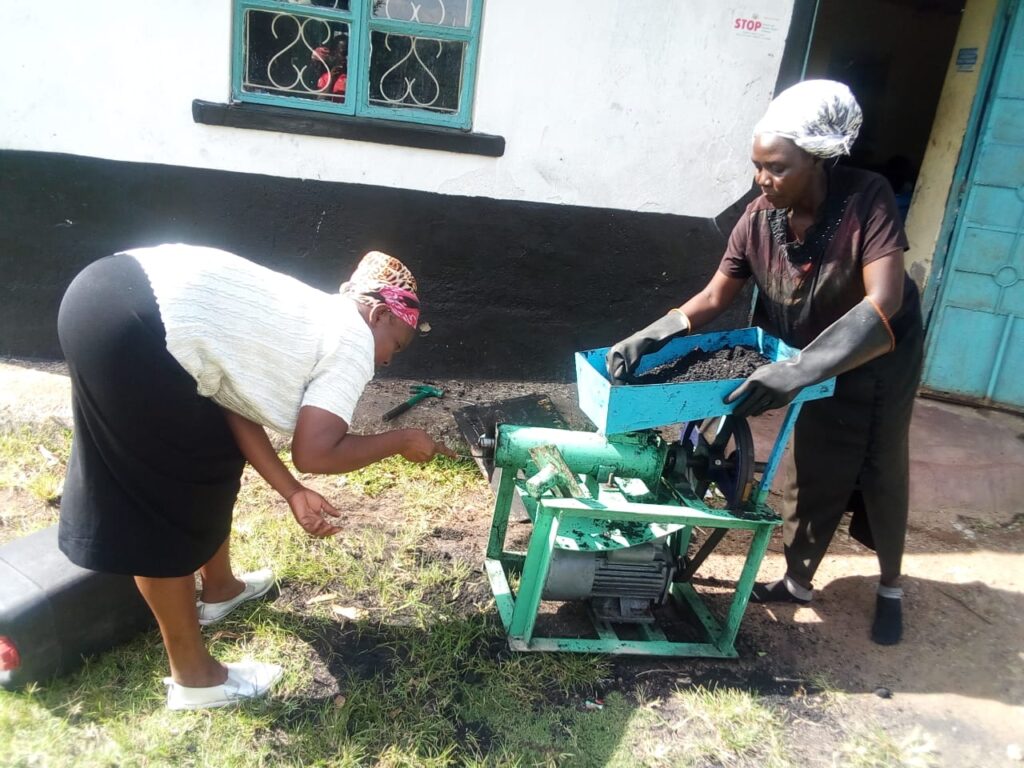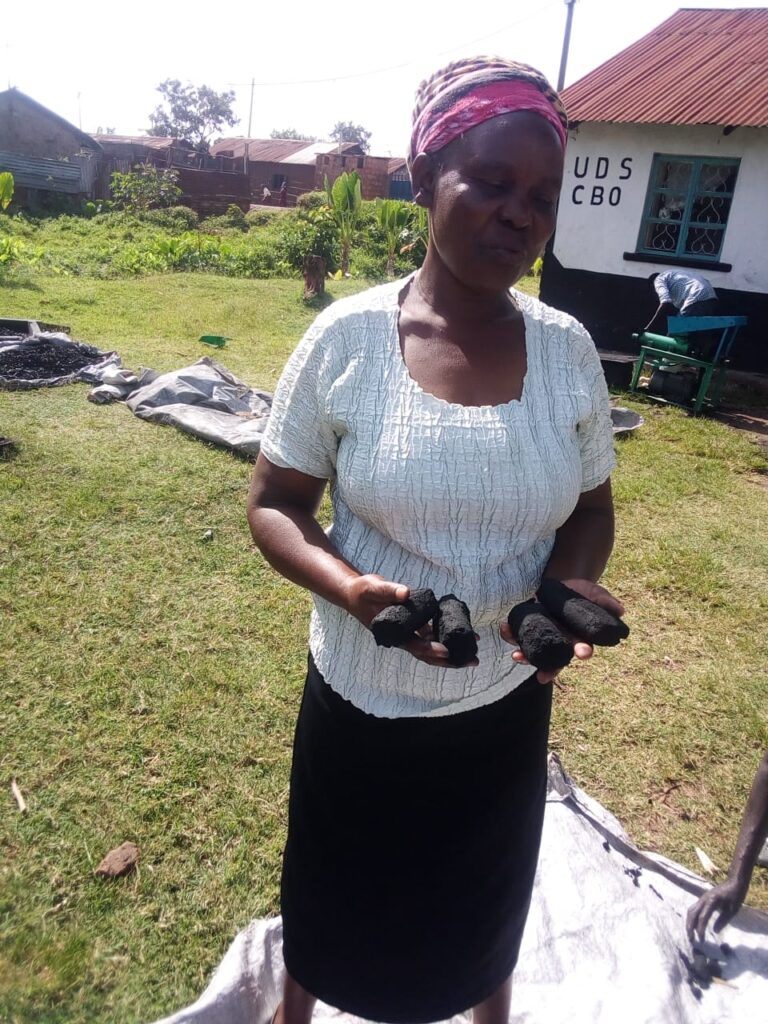In the busy Nyalenda slums, elderly women are kneeling down on a white gunny bag, spreading some black substance.
This has been their routine, as it has become a source of livelihood.
The 25 women and five men organized in a group christened United Destiny Shapers (UDS) Community Based Organization makes briquettes as an alternative source of clean and safe energy.
When they are not in their homes going about their day to day chores, they are busy at their offices, either making or sun drying the already made briquettes.
Five years ago, an organization, Practical Action, took them through various clean energy training as a way of conserving the environment.

“The idea of briquette making started a long time ago. Each of us was individually making the products on their own for their domestic use,” said Pamela Awino who chairs the group.
They were then 17 in number.
It was after the training that Awino picked the 17 who appeared determined to take the challenge.
The organization which trained them then donated some briquette moulding machines.
How it all works
The women take charcoal dust, sieve them and mix with cassava porridge.
“We normally sieve the charcoal dust so as to get the smooth charcoal dust from large particles, which we mix with sawdust, and cassava porridge so that it is a sticky mixture,” explained Phelisters Ombura, one of the members.
From the community, they are able to gather all the raw material. Dust from charcoal sellers and sawdust from carpenters are readily available.
Cassava is bought from the local markets. The cassava porridge serves as a glue which binds the mixture together, unlike water which causes some cracks hence breaking.
“A full sack of 40kg of charcoal dust is mixed with 1 kg of saw dust,” she said.
The mixture is fed in the machine which produces briquettes, thereafter they are cut into desirable sizes.
The machine is operated by one of the men due to its heavy capacity.
The already made briquettes are put in the sun to dry for three sunny days as they wait for an order from clients.
The group members say briquettes as a source of fuel are cheaper than charcoal, for instance, 5kg of briquettes costs Sh250 compared to 5kg of charcoal which costs Sh500.
“Many people still don’t know the importance of briquettes, So we urge them to embrace this source of energy because it is clean, safe, no smoke while cooking, lasts long and you won’t get dirty when you touch them,” Awino said.
According to Awino, briquette is three times convenient compared to charcoal.
Lack of marketing channels remains one of their biggest challenge, as well as lack of machine used to dry the briquettes.
“If we could also get a machine used to grind charcoal dust into small particles then we would be so glad,” she added.
The ever increasing price of charcoal dust and sawdust is also emerging as a new challenge, with the group members saying a 40kg sac of sawdust and charcoal dust now cost Sh400 from Sh200 and Sh700 from Sh250 respectively.

They are anticipating to expand the project to meet the needs of their clients who are majorly locals and the neighbouring hotels.
Their future plan is to increase the briquettes production for them to cater for the bills, purchase more machines and vehicles to aid them in deliveries.
They are also planning to establish their own website to make marketing easier, and also have their products certified by the Kenya Bureau of Standards so that they can venture into formal markets like supermarkets.
According to records from the National Environmental Management Authority (NEMA) reports, the three essential types of fuel in the country are; petroleum, electricity and wood fuel that is 21 per cent, 9 per cent and 70 per cent respectively.
The reports however indicate however that the briquettes utilization in Kenya is relatively low.
